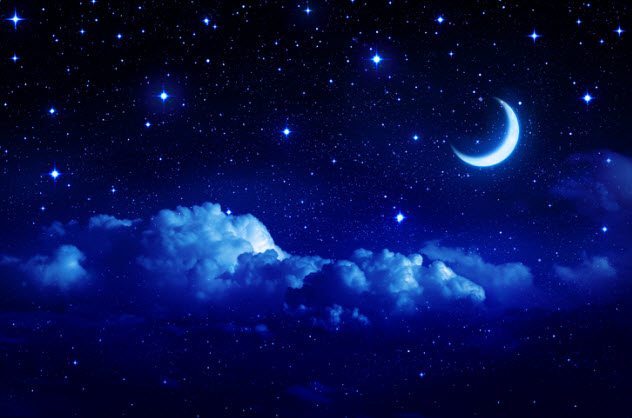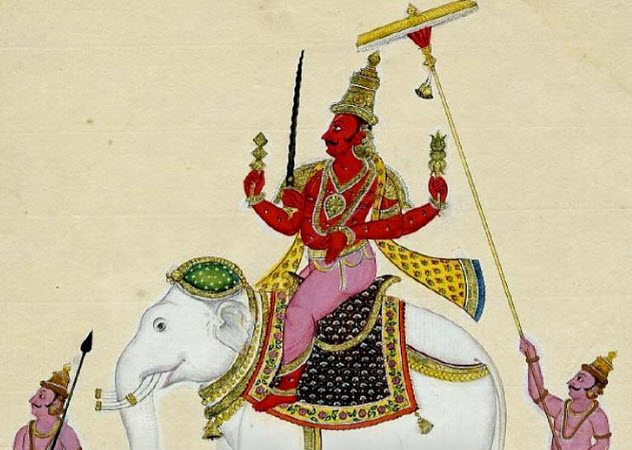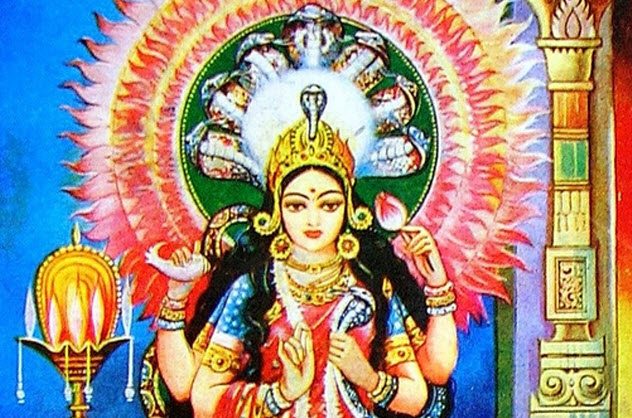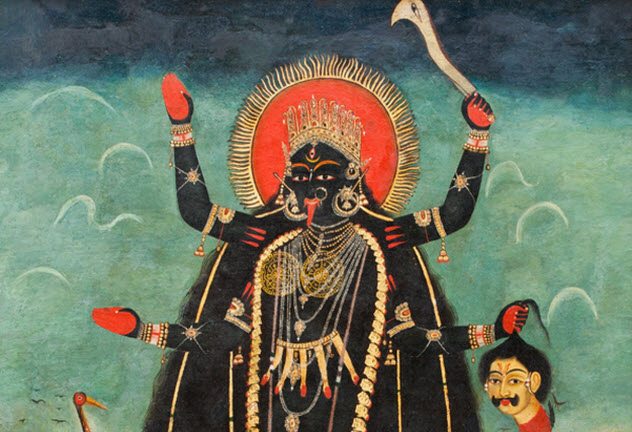 History
History  History
History  Movies and TV
Movies and TV 10 Movie Adaptations That Ruined Everything for Some Fans
 History
History 10 Dirty Government Secrets Revealed by Declassified Files
 Weird Stuff
Weird Stuff 10 Wacky Conspiracy Theories You Will Need to Sit Down For
 Movies and TV
Movies and TV 10 Weird Ways That TV Shows Were Censored
 Our World
Our World 10 Places with Geological Features That Shouldn’t Exist
 Crime
Crime 10 Dark Details of the “Bodies in the Barrels” Murders
 Animals
Animals The Animal Kingdom’s 10 Greatest Dance Moves
 Movies and TV
Movies and TV 10 Box Office Bombs That We Should Have Predicted in 2025
 History
History 10 Extreme Laws That Tried to Engineer Society
 History
History 10 Wars That Sound Made Up (but Absolutely Happened)
 Movies and TV
Movies and TV 10 Movie Adaptations That Ruined Everything for Some Fans
 History
History 10 Dirty Government Secrets Revealed by Declassified Files
Who's Behind Listverse?

Jamie Frater
Head Editor
Jamie founded Listverse due to an insatiable desire to share fascinating, obscure, and bizarre facts. He has been a guest speaker on numerous national radio and television stations and is a five time published author.
More About Us Weird Stuff
Weird Stuff 10 Wacky Conspiracy Theories You Will Need to Sit Down For
 Movies and TV
Movies and TV 10 Weird Ways That TV Shows Were Censored
 Our World
Our World 10 Places with Geological Features That Shouldn’t Exist
 Crime
Crime 10 Dark Details of the “Bodies in the Barrels” Murders
 Animals
Animals The Animal Kingdom’s 10 Greatest Dance Moves
 Movies and TV
Movies and TV 10 Box Office Bombs That We Should Have Predicted in 2025
 History
History 10 Extreme Laws That Tried to Engineer Society
Top 10 Fascinatingly Bizarre Myths Involving Goddesses From India
Throughout the subcontinent of India, hundreds of deities have been worshiped for thousands of years. There are countless fascinating stories surrounding all the different gods, goddesses, and demons that are believed to create mischief, mayhem, and miracles in the lives of us mere mortals here on Earth.
We have gathered 10 of the most fascinatingly bizarre myths surrounding some of the more colorful goddesses who have been worshiped throughout India’s history. Ever wondered why the Sun crosses the sky every day? Or what made the stars? Or where lightning comes from? Or how to save a goddess from being devoured by a giant toad during an eclipse?
Read on to learn how the ancient peoples of India answered these perplexing and intriguing questions.
10 How The Stars Were Made

The once-nomadic Dewar people, who have now settled in parts of eastern India, tell a tale of how the wind impregnated a beautiful, virginal goddess named Astangi Devi. The goddess, pregnant with twins, later birthed the deities of the Sun and the Moon, Suraj and Chandra.
At that time, Earth didn’t contain much in the way of nourishing plants, so twigs were the only food humans had to eat. Astangi Devi wanted to feed her twins something a little more substantial than sticks and broken branches, so she invented rice, bamboo, and other tasty plants to nourish her children.[1]
Sadly, one of the men on Earth became envious of the fancy food Astangi’s twins were able to eat, so he set fire to the goddess’s crops. As Astangi Devi rushed to put out the flames, sparks flew into the heavens and created the stars. She then sent her children, the Sun and the Moon, into the skies where they would be safe from the anger of humans.
9 How A Lonely Girl Became Loved Throughout The World For Eternity

In Madhya Pradesh, tribal bards tell a tale of a young woman named Tambaku. She yearned to be loved, but she was so ugly that no man wanted to marry her. Tambaku’s father offered everything he owned as a dowry for the man who would take away his daughter’s unhappiness, but even the promise of wealth was not enough to convince any man to be her husband.
Tambaku became so consumed with her loneliness and misery that she died of a broken heart. Once she was dead, the gods took pity on her, for it was them who had cursed her with such ugliness. To make amends for the pain and loneliness Tambaku had suffered during her life, the gods reincarnated her as the spirit of the tobacco plant so that she could be loved by men throughout the world for the rest of time.[2]
8 How Marital Issues Create Lightning

Husbands and wives argue sometimes—that’s a fact of life. However, the results of these marital disagreements are rarely as epic as when Nimibatapa, a goddess of the Sherdukpen people, argues with her divine husband.
When Nimibatapa makes her husband especially angry, he loses his cool and chases her across the sky, creating thunder with his great footfalls. As Nimibatapa flees from him, hoping to escape his rage, lightning flashes from her genitals. And this, ladies and gentleman, is how thunderstorms are created.
Nimibatapa is not the only goddess who creates bad weather with her lady garden when there is trouble in marital paradise.[3] Chigum-Erum, the waterfall goddess of the Miri, is a bit of an exhibitionist. She likes to lift her skirts every now and then to expose her lady parts to her husband.
When she does this, lightning flashes from her genitals (which brings a whole new meaning to the term “flashing”). Her husband is none too impressed with his wife’s immodest behavior, so he spits at her. When he does so, his spit creates hailstorms on Earth.
7 How The Ganges River Came Into Being

Once upon a time, Shiva, the dancing god of destruction, got himself into a spot of trouble. He had beheaded a demon and vowed that he wouldn’t put the demon’s skull down until it could be filled. Unfortunately for Shiva, his fiery third eye was so bright that its rays turned everything that entered the skull into ashes before it could be filled.
Shiva made his way to a hermitage, but all the sages who lived there happened to be away. The sages’ wives came running outside carrying ladles full of butter with which they hoped to fill the skull. When they laid their eyes upon Shiva, however, the wives lost control. Letting their ladles fall to the ground, they began to tear off their clothes in ecstasy.
The sages returned soon after and became enraged when they saw their naked wives throwing themselves at Shiva. So the sages tried to kill the god. A different god called Vishnu stepped in and saved the day by turning himself into a stunningly beautiful, virginal young goddess named Mohini.
Mohini was so beautiful that she had the same effect on the sages as Shiva had on their wives. So now everyone was naked, and Shiva spontaneously ejaculated everywhere. Eventually, Mohini blinded Shiva’s third eye and filled up the skull with her own blood, releasing Shiva from his vow.
In almost all the myths surrounding Shiva and Mohini (who is actually Vishnu), a child results from them being in each other’s presence. In one version, Mohini seduces Shiva beside the ocean. They unite in the ecstasy of sexual joy, and from their combined flowing love juices, the Ganges River was created.[4]
6 Why The Sun Crosses The Sky Every Day

Usas, the Vedic goddess of the dawn, has many different, often contradictory tales told about her. Although many myths depict her lighting the way for the Sun god, Surya, as he makes his daily trek across the heavens minding his own business, others tell a very different story.
One myth about Usas tells how she rides her golden chariot across the sky at dawn and exposes her beautiful breasts, which fill the heavens with light and splendor. The Sun god pursues her relentlessly, desperate to ravish the beautiful Usas.
This is the real reason that the Sun tirelessly makes his way across the sky every day. Usas isn’t lighting the way for him at all but going about her own business as the Sun chases her eternally. No one knows what will happen if Surya ever manages to catch Usas. Maybe some new rivers will be created.[5]
5 How Phalli Saved Sacred Sacrificial Liquor From The Thirst Of A Demon Queen

The Vedic text Jaiminiya Brahmana tells of Dirghajihvi, who was a demon queen with a very long tongue. She was constantly licking up the sacred liquor called soma that was offered in sacrifice to the gods.
The god Indra wanted to put a stop to Dirghajihvi’s behavior. But he was unable to thwart her, so Indra gave a hero named Sumitra the task of seducing the long-tongued queen. Sadly for Sumitra, Dirghajihvi turned him down and laughed at his advances because he only had one penis.
While many women are satisfied with one phallus per lover, that certainly wasn’t enough to satisfy the demon queen. Her entire body was covered in vaginas, which made adequate lovers very hard to come by.
Realizing that Sumitra would never be able to seduce the demon queen with only one meager phallus, Indra decided to even the playing field by endowing Sumitra with multiple penises all over his body. Dirghajihvi was unable to resist the allure of Sumitra’s many phalli and eagerly agreed to make sweet, tender love with him.
This proved to be Dirghajihvi’s downfall because Sumitra’s many penises became stuck in her many vaginas and the demon queen was unable to escape when Indra turned up to exact his vengeance upon her. Indra sneaked up and killed Dirghajihvi as she struggled to escape the very unique trap in which she found herself.[6]
4 How Snakes And Scorpions Became Venomous

Manasa is the goddess of snakes and poisons, and it is believed that those who worship her are protected from snakebites. While Manasa’s parentage is disputed, many of her worshipers in Bengal believe that she was created when Shiva accidentally ejaculated onto a lotus blossom, after which his semen dribbled to the underworld.
The mother of the king of snakes took Shiva’s “seed” and fashioned it into the beautiful goddess Manasa. Naturally, Shiva tried to make love to the beautiful girl. But he made do with taking her home to live as his houseguest once she convinced him that it wouldn’t be proper to make love to his own daughter. Shiva’s wife was none too pleased upon meeting Manasa. Believing the goddess to be Shiva’s lover, the wife scooped out one of Manasa’s eyes.
Shiva, who had a tendency to get himself in all sorts of trouble, eventually became deathly ill as a result of an extremely powerful poison called Halahala that he was storing in his throat. Halahala was created when the gods churned the great cosmic ocean in an attempt to save the universe from some particularly nasty demons.
The resulting poison was strong enough to destroy all living things. The only way to get rid of it was for Shiva to swallow it, vowing to keep it safe in his throat for the rest of eternity.
Halahala eventually got the better of the god, however, so Manasa, the goddess of poisons, was called upon to save him. Kneeling over him, she sucked the Halahala from his throat and Shiva was restored to full health. Manasa then gave half the Halahala to many of the snakes and scorpions on Earth. She kept the rest of the poison, storing it in her empty eye socket.[7]
3 How The Smallpox Goddess Lost Her Arms And Legs

Worshiped in a region near Malabar, Mandodari was the wife of a demon named Daruka who was causing a lot of strife among the gods. The goddess Bhadrakali was sent to kill the demon and so put an end to his reign of terror.
Hoping to gain the power to save her husband, Mandodari began a series of extreme devotional austerities to the god Shiva, who was Bhadrakali’s father. Finally, Shiva was forced to reward Mandodari with the gift of a few drops of his extremely powerful sweat.[8]
Armed with this smelly new weapon, Mandodari confronted Bhadrakali when the goddess returned from slaying Daruka. Mandodari flicked beads of the magical sweat at Bhadrakali, and smallpox pimples formed where the droplets fell.
Bhadrakali became extremely ill, so Shiva created a new hero from his third eye to lick the deadly smallpox pimples off Bhadrakali’s entire body. As the hero was Bhadrakali’s brother, he could not lick her face (because apparently the rules of modesty decree that it’s fine to lick your sister everywhere else as long as you avoid her face).
So Bhadrakali was left with a beautiful body, but her face was pockmarked. Enraged, the goddess cut off Mandodari’s arms and legs, after which Mandodari was forced to serve as an armless, legless goddess to whom people pray for relief from smallpox.
2 How To Save The World From An Eternal Solar Eclipse

The Khasi people, an indigenous tribe who live in northern India and some parts of Bangladesh, tell a tale of a tiger named U Khla who saw a beautiful girl named Ka Nam drawing water from a well. U Khla dragged Ka Nam to his lair to devour her. But when he realized that she was too skinny to make a good meal, he decided to keep her and fatten her up with candies until she was large enough to fill his belly.
When Ka Nam had grown into a woman, her captor invited all his friends around for the feast he was preparing—in which Ka Nam would be the main course. Fortunately for Ka Nam, a little mouse took pity on her and helped her escape, giving her directions to the cave of a toad magician named U Hynroh. Ka Nam fled the tiger’s lair. When U Khla returned with his friends, they tore him to pieces, enraged that their promised meal had escaped.
Ka Nam wasn’t faring much better than her now-deceased captor. The toad magician had taken a liking to her and transformed her into a hideous toad-like creature so that she could be his slave. The mouse again took pity on Ka Nam and led her to a magical tree that reached all the way to the sky.
In toad form, Ka Nam climbed the magical tree until she reached the kingdom in the sky where Ka Sgni, the Sun goddess of the Khasis, took pity on the hideous girl and let her live in the outhouse. One day, Ka Nam removed her toad skin so that she could brush her hair. Ka Sgni’s son saw her and fell in love.[9]
The Sun goddess stole the toad skin and burned it to ashes, releasing Ka Nam from the magician’s spell. U Hynroh became enraged and relentlessly pursued the Sun goddess across the sky for many days, trying to devour her. When he caught and swallowed her, the world’s first solar eclipse began. The terrified people on Earth began screaming and beating drums and cymbals.
U Hynroh became afraid that an army was approaching, so he spat out the Sun goddess and returned to his cave. But every now and then, he returns to devour her, hoping that the people on Earth will be too busy to help Ka Sgni. For this reason, worshipers of Ka Sgni believe that it is vitally important to make a lot of noise during a solar eclipse. Otherwise, the Sun goddess may be devoured forever by the evil toad magician seeking his revenge.
1 How The World Will End

Kali is known as the demon destroyer, the goddess of time and doomsday. She has been worshiped in many forms throughout India for millennia. Kali has either black or blue skin, depending on which stories you read, and she carries weapons in each of her multiple hands along with the severed head of a demon. She wears nothing but a necklace made of decapitated heads and a skirt made of severed arms.
In one of the most popular stories about Kali, the gods were having some serious trouble with a demon named Raktabija, the blood-seed, who could not be killed without producing more demons. Every time a drop of his blood fell to the ground, it would spawn a new blood-seed who also could not be killed without spawning more demons.
This is where Kali comes into the story. Although many different tales are told about her genesis, they all agree that she was the gods’ only hope against Raktabija. Riding into battle on a black lion, Kali began a furious killing rampage. She slew every demon in sight, drinking every drop of their blood before it could hit the ground to spawn more demons.
In this way, Kali slaughtered all the blood-seeds. But she became drunk on the blood of the demons and so continued her destructive rampage, which created chaos on Earth. The gods begged Shiva to put a stop to Kali’s wild dance.
So he lay down among the corpses strewn beneath her feet in the hopes of slowing her. When she realized that she was dancing on her consort, Shiva, Kali stuck out her tongue in shame for she had almost killed the god, and finally, her manic killing energy began to dissipate.
Many worshipers of Kali believe that she will resume her wild dance someday and it will be so energetic and chaotic that the foundations of the Earth will shake and the world will come to an end.[10]
Read more bizarre stories about India on 10 Incredibly Creepy Mysteries From India and 10 Bizarre Cases Of Mysticism From India.








